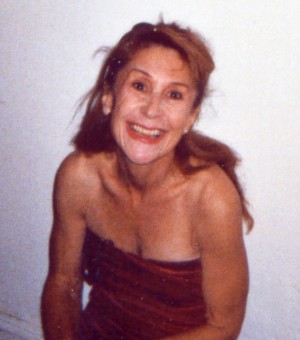New York Poet Tsaurah Litzky Cleans the Duck and Makes It Shine
For those who grew up in the 60s, coming of age was simultaneous with attending the Woodstock music festival, Beatlemania, and experimenting with mind altering drugs. But it was also a time of unprecedented change with social and political upheaval, alternative lifestyles, and the continuous battle with segregation. This powerful backdrop is the perfect introduction to New York City poet, writer and artist, Tsaurah Litzky, who would be the first one to name herself a ‘hippy girl.’
A flower child at heart, Litzky’s transformative decade began when she left her home, which was situated in Carnarsie, Brooklyn, and moved into her first apartment, a fourth floor walk-up in Greenwich Village located at west 4th and MacDougal Streets. The rent was $32 a month. It was the same year John Fitzgerald Kennedy made his famous inaugural address, and Litzky was just beginning her sophomore year at Brooklyn College, combating fear and incredulous wonderment of the pages of life left unturned before her.
Today Litzky is petite and delicate, her movements soft and subtle, except if you happen to have a look into those big brown eyes. Here her intelligence is revealed. One can almost feel her freedom and the ideals stored away from another decade in the mildew of her pupils, constantly being refreshed by her sheer enthusiasm for life and for writing. She says she never aspired to be a writer; she just was.
Always adventurous and veiled in surprise, her writing easily crosses boundaries between fantasy and reality as quickly as pouring a cup of coffee. With her recent release of her second book, a compilation of poetry entitled Cleaning The Duck, and her previous works inclusive of erotic novellas and a play on Charles Bukowski, as well as an up-and-coming memoir, Flasher, Litzky has proven that she is nothing less than a dynamo of productivity.
In an exclusive interview with GALO, Litzky lets us wander into her world, discovering its secrets, while she discusses her new book, Cleaning The Duck, her influences and inspirations, world politics, and what it takes to persevere.
GALO: Your new book of selected poems, Cleaning The Duck, seems full of inspiration. I think it reads almost like a diary or journal, intimate and revealing. For instance, in your poem “Lament,” you write: “You came to/see me after/fifteen years/ and I didn’t /have any coffee in/the house/or any beer/where did/the last roll/of toilet paper go/how could/ the paper towels/be gone also…” What were your thoughts and ideas in selecting these poems?
Tsaurah Litzky: I tried to select the very best poems out of the poems I’ve written between 2005 and 2010. As I have read many of the poems in the book readings, I took into account the audience reaction.
GALO: In a review of your first complete book of poetry, Baby on the Water, a reviewer at A Gathering of the Tribes, writes that she sees a Litzky paradox – that even with such a pessimistic world view, you are still able to write with a “rollicking, jolly spirit.” Where does this spirit come from?
TL: My mother, Ruth. She raised me to make the best of every minute, every day, to always “look for the silver lining,” if you will forgive the cliché. She also raised me not to complain and not to explain. Yet here I am engaged in this interview with you, and an interview, by its nature of question and response, is a series of explanations. However, in this case I don’t think she would mind, she was so proud of my accomplishments as a writer. She is dead 13 years, I miss her so much.
GALO: You’ve previously mentioned at the literary site, Red Lemonade, how you enjoy changing a negative to a positive. This doesn’t seem something a pessimist might say. How important is the positive?
TL: I’m not a pessimist or a masochist either. I try not to be a narcissist also, but often don’t succeed because there is so much self-examination involved in the way I approach my craft as a writer. Besides I’m vain about my big, beautiful eyes and my good figure. It takes a lot of work at this stage in my life. If I have a motto it is “No Surrender.”
GALO: Throughout CTD you reference other poets: Allen Ginsberg, Arthur Rimbaud, Charles Bukowski, and William Blake. But with William Blake it’s much more than a mere mention, as you give him life inside several poems where he interacts with you, the narrator. Why does Blake receive such special treatment?
TL: In 2004, I was in Amsterdam to read at The Burning Tongues Poetry Festival. I was staying in a friend’s apartment; my friend had a magnificent library, including all of Blake’s work plus biographies and critiques about him. I started to read through this Blake section and then Blake began to appear in my dreams. Eventually, when I got back to the States, I wrote a series of Blake poems, which was published by Snapdragon Press in a chapbook, Blake Haunts Me. The Blake poems in CTD are from this chapbook.
(Article continued on next page)

